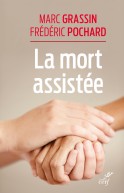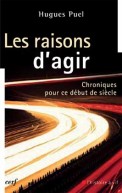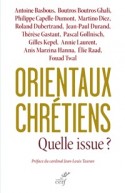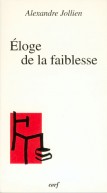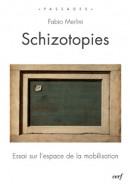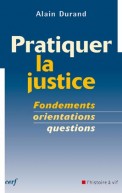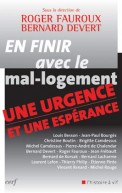
La déshumanisation civilisée
de Frédéric Pochard , Marc Grassin
Collection L'Histoire à vif
272 pages - janv. 2012
24,20€
Le développement de l'éthique serait le signe prometteur d'une humanité responsable. L'éthique, nouvelle compagne de route du sujet libéral contemporain, ne semble être, le plus souvent, qu'un alibi pour éviter d'engager une critique qui obligerait à revisiter de fond en comble son anthropologie. L'usage inflationniste, l'indifférenciation et l'instrumentalisation des discours « éthiques » vident l'éthique de son enjeu critique. Derrière l'image séduisante de l'humanisme libéral d'aujourd'hui, ouvert à la différence et à l'altérité, se cache une réalité plus sombre, celle d'un homme soucieux de s'affirmer toujours plus dans des pratiques civilisées mais qui, au-delà des apparences, engagent un processus de déshumanisation. L'éthique dominante de nos jours n'est-elle pas, dans la plupart des cas, un instrument soumis aux ordres d'une libéralisation morale, en réalité, faussement libératrice ? L'éthique ne devrait-elle pas plutôt oser le pari d'une imprudence ? Si elle est critique et parole, elle doit entraîner conséquemment un soupçon radical mais bienveillant sur nous-mêmes et sur le monde que nous inventons.
--
The development of ethics is said to be the promising sign of a new, responsible humanity. Ethics, the new travelling companion of the contemporary liberal man, seems to be in most cases no more than a means of avoiding the criticism that would oblige us to undertake a profound reassessment of our anthropology. The increased usage, amalgamation and instrumentalisation of ethical notions have emptied ethics of its critical facet. Behind today’s seductive image of liberal humanism, open to difference and to otherness, lurks a darker reality: that of human beings keen to attest their civilised ways but who, beyond appearances, have entered into a process of dehumanisation. Isn’t the dominant ethic of our times, in most cases, an instrument subject to the commands of a moral liberalisation that is far from liberating? Shouldn’t ethics rather be the means of daring imprudence? If ethics implies critique, it must inevitably be slightly radical, but well-meaning towards ourselves and the world we invent.
--
The development of ethics is said to be the promising sign of a new, responsible humanity. Ethics, the new travelling companion of the contemporary liberal man, seems to be in most cases no more than a means of avoiding the criticism that would oblige us to undertake a profound reassessment of our anthropology. The increased usage, amalgamation and instrumentalisation of ethical notions have emptied ethics of its critical facet. Behind today’s seductive image of liberal humanism, open to difference and to otherness, lurks a darker reality: that of human beings keen to attest their civilised ways but who, beyond appearances, have entered into a process of dehumanisation. Isn’t the dominant ethic of our times, in most cases, an instrument subject to the commands of a moral liberalisation that is far from liberating? Shouldn’t ethics rather be the means of daring imprudence? If ethics implies critique, it must inevitably be slightly radical, but well-meaning towards ourselves and the world we invent.
- Dimensions : 135x215x20
- ISBN : 9782204095556
- Poids : 360 grammes
Avec la collaboration de : Didier Sicard
DU MÊME AUTEUR
> VOIR TOUS LES LIVRES DE l'AUTEUR
DANS LA CATÉGORIE
Orientaux chrétiens, quelle issue ?
de Claudie Guimet ,Philippe Capelle-Dumont
192 pages - avril 2011
En finir avec le mal logement
192 pages - mars 2010

